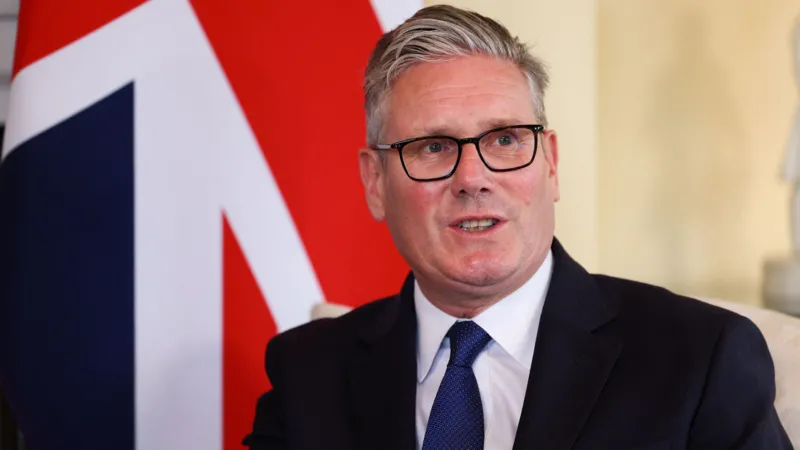Majority of Iranians oppose the death penalty
Despite criticism at home and abroad, the Iranian government continues to hold firm on Revolutionary Courts and death sentences.

So far, the Iranian regime has carried out two death sentences, one week apart, imposed on people who had participated in nationwide anti-government protests. The demonstrations are taking place in different parts of the country, with varying intensity, and are now in their fourth month.
The two men executed, Mohsen Shekari and Majidreza Rahnavard, were in their early twenties. The country's Revolutionary Court accused Rahnavard of killing two members of the security forces with a knife and injuring four more. Shekari had been charged with injuring a member of the Basij militia with a knife and blocking a road.
Both men were convicted soon after their arrests, of "moharebeh" — "waging war against God" — an offense enshrined in Iranian criminal law. Like that of "spreading corruption on Earth," this offense can cover any threat to public order, with or without the use of a specific weapon. Simply "spreading lies" is enough to qualify as "corruption." Crucially, these two offenses allow for a swift conviction and the imposition of the death sentence by the Revolutionary Courts.

Revolutionary Courts and the consolidation of power
In the case of Mohsen Shekari, simply holding a knife on the street was enough to condemn him to death. The judge said that, in doing so, he had "caused fear among the population," explains Mahmood Reza Amiry-Moghaddam, the director of the Oslo-based NGO Iran Human Rights. He recalled another case that highlighted the blatant arbitrariness of such rulings. "Some years ago," he says, "a person close to [Iran's religious leader Ayatollah] Khamenei's circle used a revolver to shoot at a car following a car accident, in the middle of the street. The court dropped all charges against him."
However, the institution of the Revolutionary Courts is coming in for criticism in Iran, according to Germany's Frankfurter Allgemeine Zeitung (FAZ). The newspaper reports that these latest death sentences have triggered a discussion about whether the Revolutionary Courts should still exist, 43 years after the revolution. Lawyers are saying they are illegal, and have called for them to be abolished.
Iran's chief justice, Gholam-Hossein Eje'i, has rejected this demand. His response, as quoted in the FAZ, was: "Some people criticized the existence of the Revolutionary Courts as early as 1980, saying that after the victory of the Revolution they were not needed anymore. Time, however, has shown how effective and essential they are for the Revolution."
An Iranian hacker group obtained documents from the Fars news agency indicating that the Iranian judiciary is accusing around 80 of those arrested of "waging war against God" or "spreading corruption on Earth." The French newspaper Le Monde writes that these documents show the ultra-conservative parliamentary group "Coalition Council of Islamic Revolution Forces" was already pushing for the imposition of as many death sentences as possible, even before the two young men were executed.
According to rights group Amnesty International (AI), in mid-December at least 26 people arrested in connection with the protests were in grave danger of being executed.
Reaction of the security apparatus
The Financial Times (FT) newspaper quotes an unnamed regime insider close to the security apparatus as follows: "We have to resolve this crisis at home. This [movement — FT] should not expand. Some protesters may be shown the hell but not pushed into the hell [i.e. won't be hanged — FT]. But those who have killed security forces will definitely be executed." The NGO Human Rights Activists in Iran says that, so far, around 60 members of the security forces have been killed, as opposed to around 500 demonstrators.
However, as is clear from the death sentences and executions that have been handed down and carried out so far, no distinction is being made between whether the accused did in fact kill members of the security forces themselves, or merely took part in a demonstration during which security forces were injured or killed. Nor is any consideration given to the possibility that they may have acted in self-defense, or were coming to someone's rescue. The maxim is that vengeance must be taken for the security forces who died, without regard for the due process of the rule of law.

Leadership strategy under pressure
This approach has also been criticized in established Iranian circles. "Just like the international voices, domestic voices can also contribute to raising the political cost of the executions," says Mahmood Amiry-Moghaddam. International support emboldens people inside Iran to speak out, he says, "When there is so much criticism and attention, the executions might lead to more anger and protests, and that's the opposite of what the regime wants." Because the aim of the executions is to spread fear, so as to stop people from protesting and demanding real change.
And there's something else. "The international support for the death row protesters also makes it less dangerous for the people inside Iran to support these protesters," Amiry-Moghaddam says. That way, the regime's strategy of executing "faceless," i.e., less well-known, opponents — like Mohsen Shekari — will fail.
This strategy worked for the regime in the past, says the human rights campaigner. "In the 1980s, thousands of protesters and political opponents were executed, by the same people who are ruling now. However, I think the situation today is very different. At that time, the regime still had considerable support in parts of the society. They lack that support now. The current protesters even include people from the parts of the society that traditionally constituted the base of the regime's supporters."
And something else has changed, too, he explains: the attitude toward the death penalty in general. "When Iran Human Rights started its work in 2005, the death penalty as such wasn't an issue that engaged people. Particularly, the death penalty for non-political cases didn't get any attention. This has now changed. In 2020, a survey was conducted in which more than 20,000 people inside Iran participated. According to that survey, more than 70% of Iranians were either for the complete abolition of the death penalty, or agreed with it only in very serious cases, such as genocide."
Iran, he says, probably has the biggest movement for the abolition of the death penalty in the Middle East and West Asia. The founder of Iran Human Rights hopes this bodes well for the future: "After this regime, Iran can be the first country in the Middle East that will abolish the death penalty."
This article has been translated from German.
Source: DW.COM







